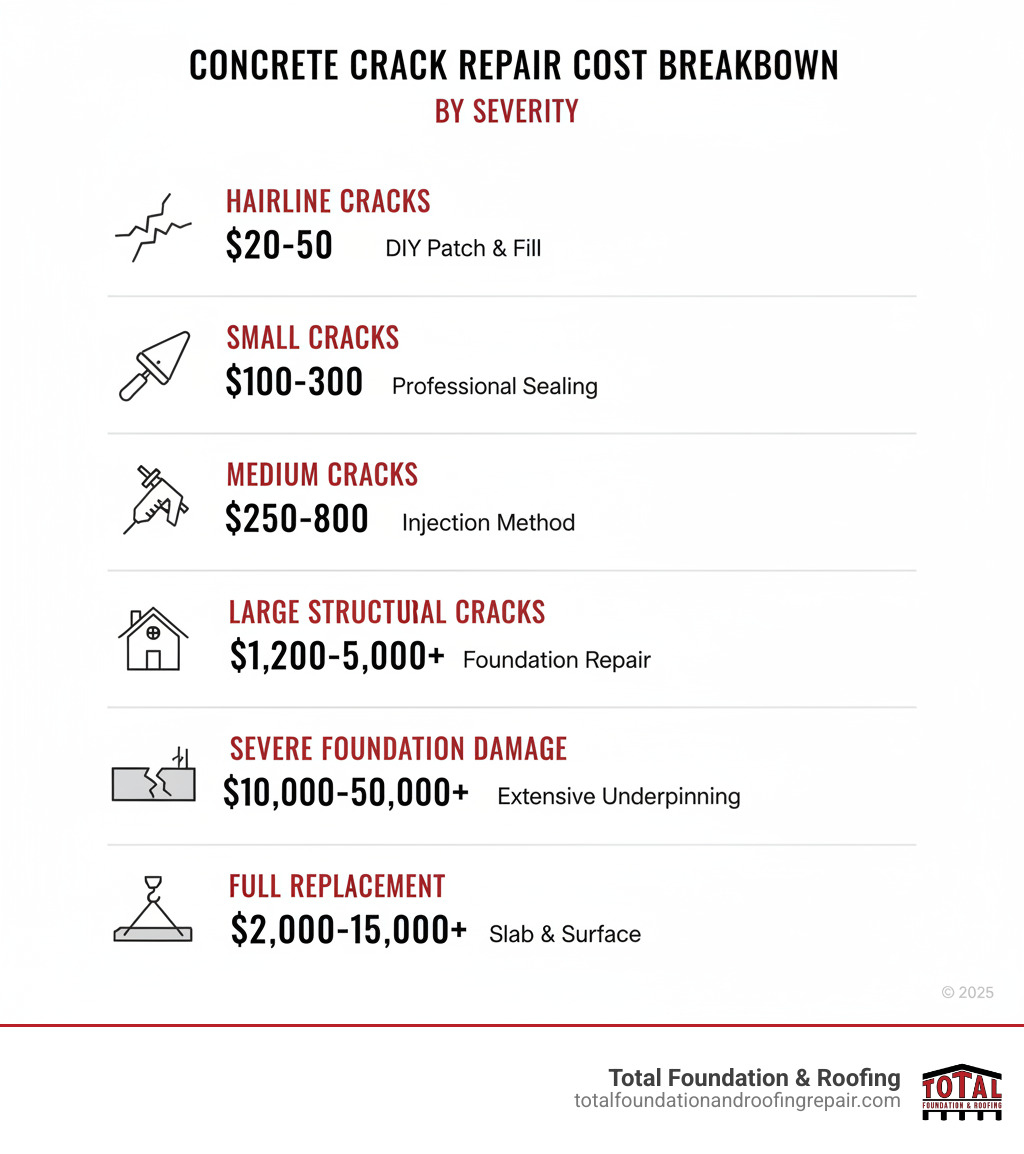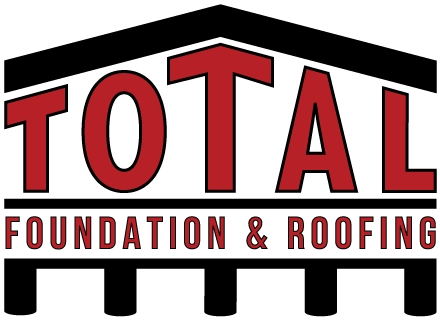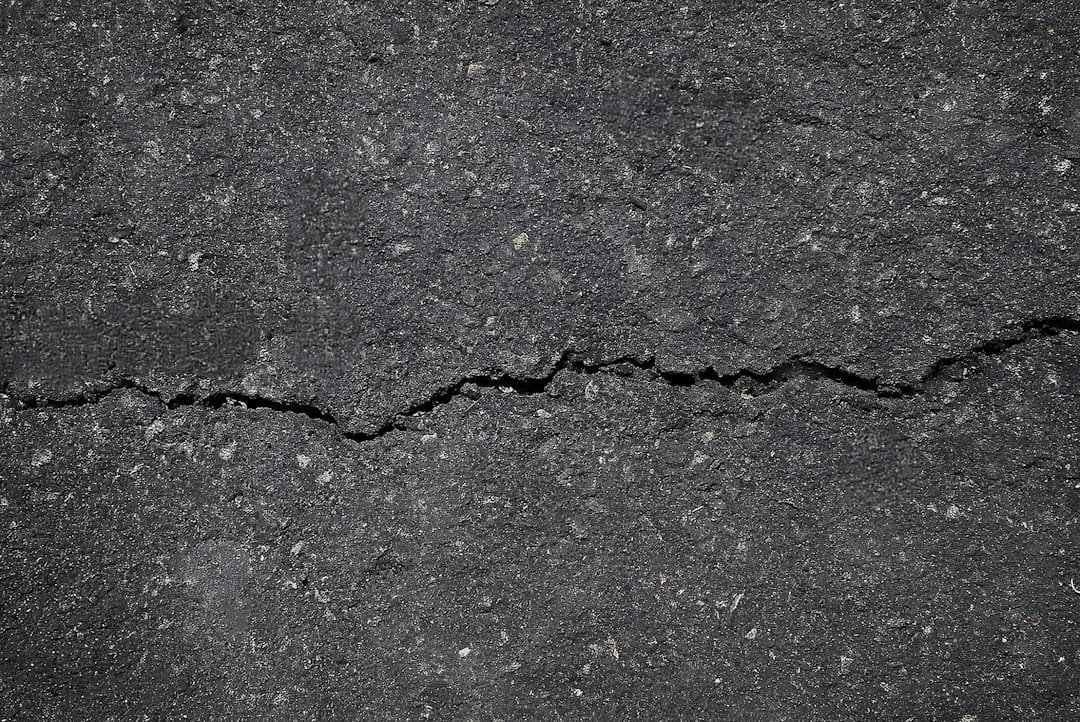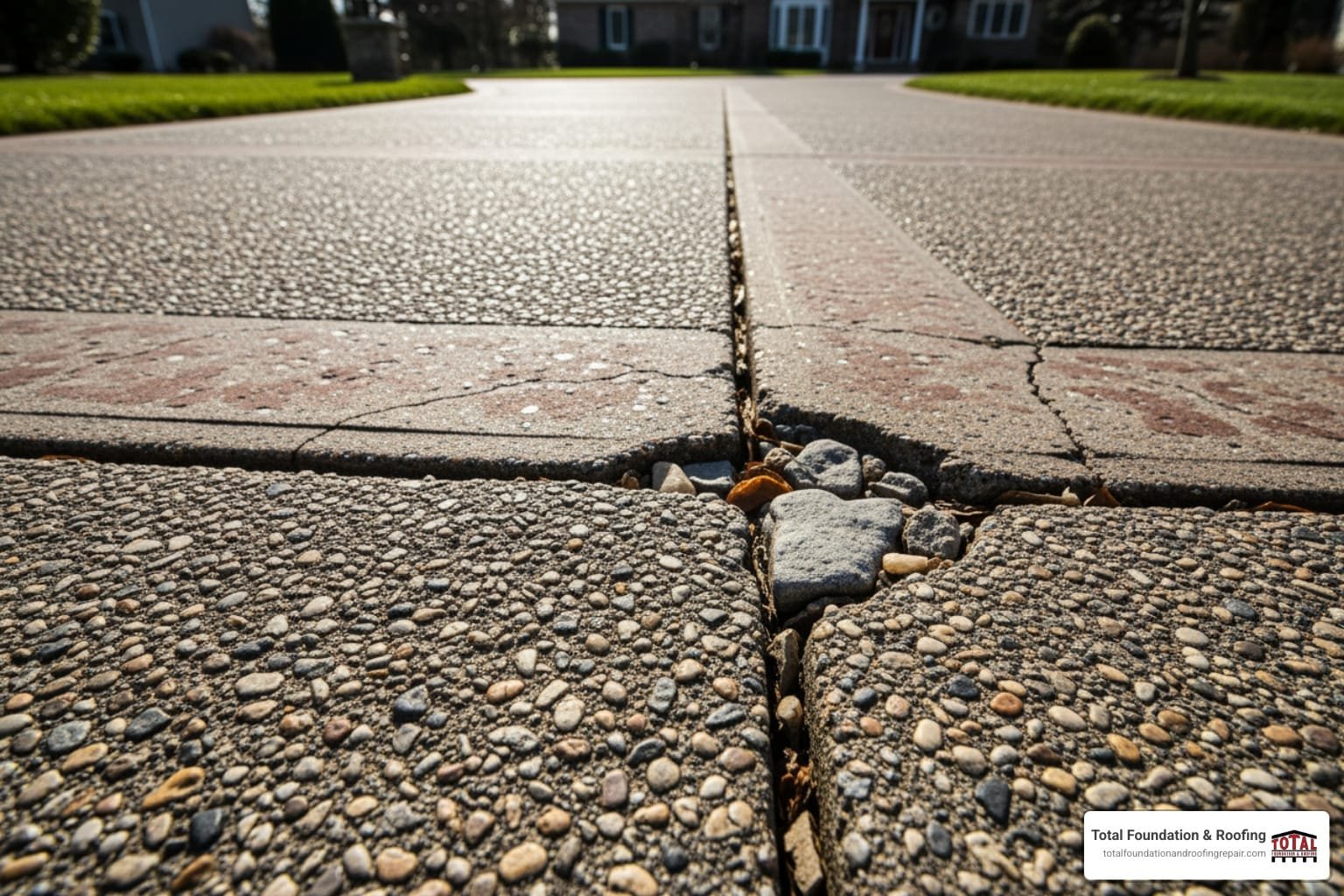Table of Contents
ToggleUnderstanding the True Cost of Concrete Crack Repair
Concrete crack repair cost varies dramatically based on the severity of damage, repair method, and whether you tackle it yourself or hire a professional. Here’s what you need to know:
Quick Cost Overview:
- DIY minor repairs: $20–$50 for patch kits and fillers
- Professional crack sealing: $250–$800 per crack
- Concrete leveling: $500–$6,000+ depending on method
- Full slab replacement: $2,000–$15,000+ for extensive damage
- Structural foundation repairs: $1,200–$50,000+ for major issues
That small crack in your driveway might seem harmless, but it’s often a warning sign of bigger problems developing beneath the surface. For homeowners seeking reliable foundation and concrete services, understanding these risks is the first step. Water intrusion, soil erosion, and freeze-thaw cycles can turn a hairline crack into a costly structural issue in months. The good news? Catching and repairing concrete damage early can save you thousands compared to waiting until replacement becomes necessary.
As Daniel Sowell, owner of Total Foundation & Roofing, I’ve spent over 18 years helping Texas Hill Country homeowners understand and manage their concrete crack repair costs through honest assessments and quality workmanship. Whether you’re dealing with a minor patio crack or a serious foundation issue, understanding the factors that drive repair costs empowers you to make smart decisions for your property. For expert advice and reliable solutions, explore our comprehensive foundation repair services.

Basic concrete crack repair cost vocab:
Breaking Down the Concrete Crack Repair Cost
When you’re staring at a crack in your concrete, the first question that comes to mind is usually: “How much is this going to cost me?” The answer isn’t always straightforward. Concrete crack repair cost depends on several moving parts—the repair method you choose, how extensive the damage is, and whether you’re rolling up your sleeves for a DIY fix or calling in the pros.
A hairline crack in your walkway is a completely different beast from a wide, structural crack running through your foundation. Think of it this way: fixing a small crack is like patching a tire, while addressing a major foundation issue is more like replacing your entire suspension system. Understanding these differences helps you budget realistically and avoid sticker shock down the road.
DIY vs. Professional Repair Costs
For tiny, non-structural hairline cracks, a DIY approach is sensible, costing $20 to $50 for materials like caulk or a patch kit. The process involves cleaning the crack, applying the filler, and smoothing the surface. However, for wider, active, or leaking cracks, professional crack repair services are essential. Professional repairs for non-structural issues typically run $250 to over $1,000, while structural foundation problems can range from $1,200 to $50,000+. A DIY fix on a serious crack can lead to costlier damage later, whereas a professional can diagnose and fix the root cause.
Factors That Influence the Final Bill
The type of crack you’re dealing with reveals the underlying issue. According to industry resources like the American Concrete Institute, common types include:
- Hairline cracks: Thin lines (less than 1/16 inch wide) that are often superficial and caused by normal concrete curing.
- Shrinkage cracks: Stable cracks that appear as new concrete dries and hardens.
- Settlement cracks: Wider gaps that suggest the ground beneath your slab is shifting.
- Structural cracks: The most concerning type, these are wider than 1/4 inch, show displacement (one side is higher than the other), or are actively growing. Horizontal cracks in foundation walls are a serious red flag demanding immediate professional attention.
Understanding the cause of the crack is crucial for a lasting repair. Common culprits include:
- Concrete shrinkage during the initial cure.
- Freeze-thaw cycles and extreme temperature swings.
- Hydrostatic pressure from water buildup against slabs and foundation walls.
- Expansive clay soils, a major issue in the Texas Hill Country that causes ground movement.
- Tree root growth lifting and breaking concrete.
- Poor installation, such as an inadequate sub-base or a weak concrete mix.
- Heavy loads that exceed the concrete’s capacity.
- Poor drainage that allows water to pool and saturate the soil.
The location of your crack also matters. Driveway cracks face vehicle stress, patio cracks can signal drainage problems, walkway cracks create trip hazards, and foundation cracks are the most critical to your home’s stability. Finally, severity is measured by width, depth, and whether a crack is active (still growing) or dormant (stable).
Pro Tip from Total Foundation & Roofing: Foundation cracks can appear as step cracks in cinder blocks, or as vertical, horizontal, or diagonal lines in concrete. We recommend an annual foundation inspection to catch issues early. If you spot a crack, understanding its type is the first step toward a proper repair.
For more insights into identifying and addressing various concrete problems, visit our concrete crack solutions guide.
Average Cost by Repair Method
The repair method you choose has the biggest impact on your final bill. Let’s break down your options from simplest to most complex.
Crack injection is the go-to method for sealing most cracks. Epoxy injection essentially welds the crack shut with a substance that hardens stronger than the surrounding concrete—perfect for stable, non-moving cracks where structural integrity matters. Polyurethane foam injection takes a different approach, staying flexible after it cures. This makes it ideal for cracks that experience seasonal movement or high water exposure. Expect to pay $250-$800 per crack for non-structural injection repairs.
Patching works best for surface damage, spalling, or small chips. If you’re going the DIY route, you’ll spend $5-$80 on materials like cement-based or acrylic patching compounds. Professional patching ranges from $100-$1,000 depending on the area size and complexity involved.
Resurfacing means applying a fresh layer of concrete or an overlay to restore your surface’s appearance. DIY resurfacing materials for a small area might run $5-$80, while professional resurfacing of larger areas like driveways or patios typically costs $2,000-$5,000.
When your concrete has sunken or become uneven, concrete leveling addresses the underlying problem. Mudjacking (also called slabjacking) pumps a cement-based slurry under the slab to lift it back into place. Poly-jacking (foam jacking) uses expanding polyurethane foam instead—it’s lighter, more precise, and more durable. Professional leveling costs range from $500-$6,000+, averaging around $14 per square foot. For more information on leveling techniques, explore our concrete leveling services.
When Repair Isn’t Enough: Replacement Costs
Sometimes, your concrete is beyond saving. If you’re seeing crumbling throughout, multiple large cracks, severe heaving, or widespread deterioration, replacement becomes the only viable option. Replacement is expensive, costing $2,000 to $15,000+ depending on your slab size, site access, and desired finish. While the upfront cost is higher, it’s a long-term solution that gives you decades of worry-free concrete, saving you from endless repairs. A professional can help you determine whether repair or replacement is the most cost-effective option for your concrete driveway.
Additional Costs to Consider
Smart homeowners budget for these additional expenses to ensure a complete, lasting repair:
- Permits: May be required for large or structural projects, costing $50-$400+.
- Landscaping Restoration: If excavation is needed, restoring your yard can cost a few hundred to several thousand dollars.
- Drainage Solutions: Installing French drains or improving grading addresses the root cause of water-related cracks and can range from a small DIY cost to thousands for professional work.
- Sealing: Protects the repaired concrete from moisture and freeze-thaw cycles. DIY kits cost $60-$90, while professional sealing runs $400-$500.
- Tree Root Removal: If roots are the culprit, professional removal can cost $300-$800.
Protecting Your Investment: Next Steps for Your Concrete
Repairing concrete cracks is essential for maintaining your property’s value and structural integrity. By understanding the factors that contribute to concrete crack repair cost, you can budget effectively and select the right solution. Most concrete problems don’t fix themselves—they only get worse. But the good news is that proactive maintenance gives you control.
Your best defense is regular inspection and maintenance. Walk around your property each season and look for new cracks or changes in existing ones. To protect exterior concrete, apply a siloxane sealer every 3-5 years to guard against freeze-thaw cycles and moisture intrusion. Ensure the ground around your home has a 1/4 inch per foot slope away from structures to prevent water from pooling against your foundation. For safety, any trip hazards over 1/4 inch in height on walkways should be addressed promptly.
Your Guide to a Lasting Repair in the Texas Hill Country
Homeowners in the Texas Hill Country face unique challenges from our expansive clay soils, which swell when wet and shrink when dry, putting significant stress on concrete. When it rains, the soil expands. When it’s dry, it contracts, and your concrete is forced to move with it.
Whether you’re in Kerrville, Fredericksburg, or Comfort, a professional assessment is vital for understanding what’s really happening beneath your concrete. The team at Total Foundation & Roofing brings local expertise to diagnose the root cause of your concrete issues and recommend the most effective, long-lasting repair. We understand the nuances of our region, from addressing aggressive live oak roots to implementing robust drainage solutions that work with our Hill Country terrain. Our approach ensures that repairs not only fix the visible cracks but also tackle the underlying problems to prevent recurrence.
If you’ve noticed cracks in your driveway, patio, or foundation, don’t wait for the problem to worsen. Contact us today to schedule a comprehensive evaluation and receive a detailed estimate for your concrete crack repair cost. We’re here to help you protect your investment for years to come.




